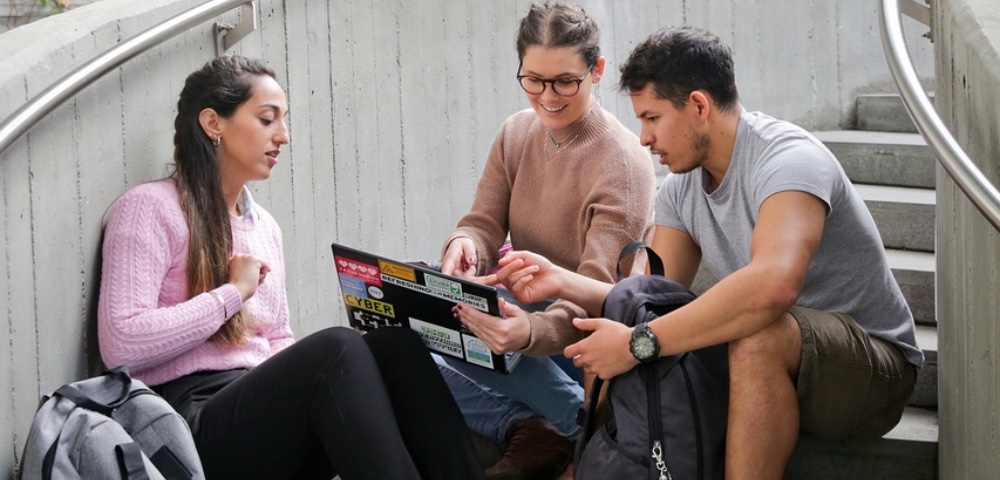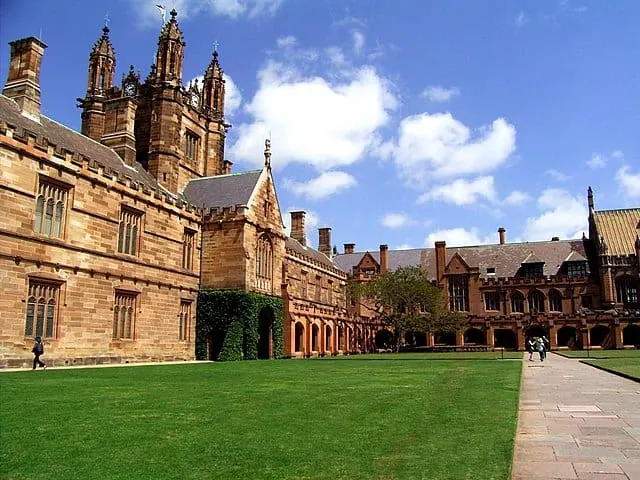

University students in Australia are confronting what could be a lifetime of debt, as the cost of higher education continues to soar.
For the first time, a standard three-year arts degree is projected to exceed $50,000, while the cost of a law degree is expected to reach $85,000.
Experts have criticised the dire financial landscape for incoming undergraduates, warning that some will never be able to pay off their debts.
Data released by the Department of Education earlier this month, determining the federal government and students’ contributions each year have revealed soaring costs for arts, humanities and social sciences degrees.
Starting next year, the cost for subjects within the society and culture cluster—such as history, philosophy, politics, and sociology—will increase to $16,992 annually. This new rate will also apply to degrees in communications, media, journalism, as well as business, law, and economics.
Job-Ready Graduates Program: Humanities Students Hit Hardest by Fees
The Job-Ready Graduates Program, introduced by the Coalition government in 2021 was introduced to “incentivise students and universities to focus on work relevant qualifications”. The program offered reduced student contributions for targeted courses (such as nursing or mathematics), while students in other courses incurred much higher student contributions as a deterrent.
However, the Job-Ready Graduates Program has been highly criticised by higher education experts, universities and student advocacy groups for hiking fees and contributing to funding cuts across various degrees.
An interim report into the Job-Ready Graduates Program declared that the package required a “redesign” before it caused “long-term and entrenched damage to Australian higher education”.
Additionally, a study by researchers at the University of Melbourne examining the impact of changes in student fees and government subsidies on university field of study preferences and enrolments in New South Wales found that there was little change in subject preferences despite the hiked fees.
The researchers surveyed 725,000 Australian students applying for Bachelor’s degrees in New South Wales and the Australian Capital Territory. Despite a significant 59 percent reduction in fees for mathematics and statistics, only one in every 2,000 students adjusted their preference to this field.
Just 1.5% of Students Changed Fields Due to ‘Job-Ready Graduates’ Fee Package
Overall, the study found that only about 1.5 percent of students adjusted their field preferences in response to the recent fee reforms.
The Job-Ready Graduates Package has exacerbated inequalities, imposing significantly higher HECS fees on students pursuing degrees in humanities, arts, or communication.
As student debt becomes a lifelong commitment, rising fees are expected to burden an entire generation.
Former Western Sydney University law student Judith expressed her shock at the skyrocketing tuition fee, reflecting on the government’s decision to cut $3 billion of student debt in May this year.
“I thought that things were getting better when I read about the government easing indexation fees. When I think about how I paid just under $60k for my 5-year double degree, it’s clear how much more expensive things are getting”, she said.
Judith stated that she was relieved to have paid off her HECS debt, noting that she felt the “pressure” to pay it off earlier to avoid the 7.1% indexation applied last year because she “didn’t want a debt that huge to be hanging over my head”.
Greens Slam Job-Ready Graduates Program
Greens Deputy Leader and Higher Education Spokesperson Mehreen Faruqi condemned the projected costs of arts degrees.
“Labor’s student debt relief policy is a bad joke. It still means student debts rising by 11.5% in their first term of Government and arts degrees costing over $50,000. That’s not a solution, that’s a disaster for people already crushed by a housing and cost of living crisis”, Greens MP Faruqi said.
“All the scheme has done is condemned generations of young people to decades of debt and pushed universities further into strife. It has entrenched gender inequality as women overwhelmingly study the courses which were hit hardest by the fee hikes and are incurring more and more student debt”, Senator Faruqi said.
Students Bid for the End of University Corporatisation
UTS student Taylor* who is pursuing a double degree Arts and Design currently has a HECS debt of $64,942.
“I remember when I saw my HECS while doing taxes, I was shocked at how much had accrued over the past 7 years”, Taylor said.
Taylor switched majors from animation to visual communication, which extended their studies by two years, and also took out an overseas HELP loan for an exchange program in Japan. They felt the HECS system had caused students to underestimate the “actual amount we owe to the government”.
“I remember thinking that as long as we have the HECS system, the money we borrow for education is just a number to be paid back slowly”, they said.
“Knowing that Australia used to have free tertiary education, it’s upsetting to know that we’re going backwards as a nation – especially when the benefactors of free tertiary education are also those that have amassed a large amount of wealth”, they added.
Morally Reprehensible Fee Hikes
ACU honours student Bridget criticised the government’s job-ready graduates package, stating “Forcing people in a cost of living crisis to do a degree they would not do unless under intense financial stress is something I could not imagine this ‘so-called’ pro education government to do”.
Bridget finished a Bachelor of Arts with $36 000 of debt, with her last semester of her history degree subject to “major hikes”.
“It is morally reprehensible that the labour government is forcing people to choose between educational achievement and enjoyment over being able to live. They claim to be better than their predecessors and yet my HECS debt has nearly doubled”, Bridget said.
“It was so infuriating to see mandatory units double in price overnight because someone decided I would be better off doing nursing or teaching”, she added.
*Name has been changed for anonymity










